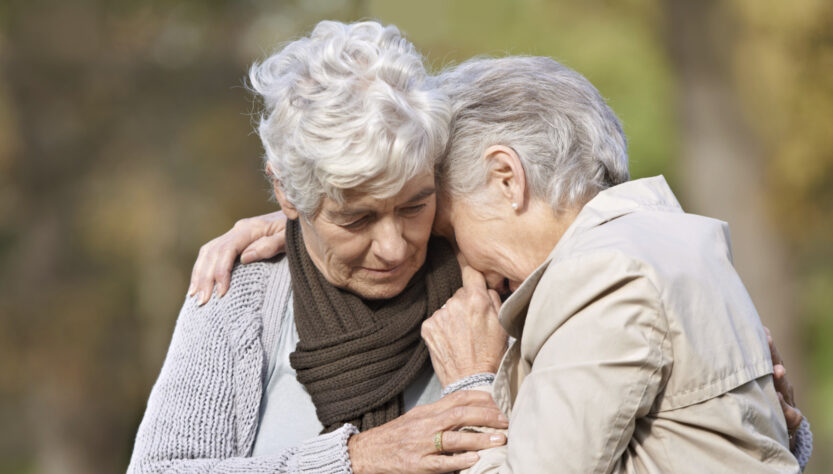
Depression & Anxiety in Older People
We tend to think that depression and anxiety are for the young, however, depression and anxiety in older people are incredibly widespread.
Teenagers stress over school, home and public life, a turbulent and unsettled world. We all know that expectations to look a certain way and be a social stereotype put huge pressure on young people. Social media, whilst excellent as a way to communicate and follow others can also be detrimental.
We like to think that when we are older life becomes more settled and relaxed. Elderly people struggling with reduced mobility, less energy and an increase in the cost of living are certainly not immune to depression and anxiety. Many women especially start to experience increased depression and anxiety in menopause. Brain fog, joint stiffness, hot flushes and insomnia make life seem less joyful.
When I worked in the community as a carer I found that increasing numbers of elderly people were experiencing increasing depression and anxiety. When someone tells you they wished they would go to sleep and not wake up, it is tragic. In my current role, I continue to see the day-to-day struggles of the loss of independence and loneliness.
Causes of depression and anxiety in old age
Realistically, the older people become the less able they are to cope with issues. Problems that in earlier years would probably have seemed minor become so huge that often they can’t sleep, lose their appetite and will to live. Reduced mobility and ability, a lack of energy and independence, loss of a partner and pain are enough to lower the mood in anyone. Loneliness is known to be a killer, as dangerous as smoking.
To family members, their loved ones’ needs may be demanding which can be annoying, especially if you have heavy work and family commitments of your own. Sandwich generation carers, people caring for children and parents simultaneously are also prone to depression and anxiety, especially now with the spirally cost of living and world uncertainty
Getting help and support
I know, I was there with my late Mother in Law. I was working, had young sons and had a dependent relative on the other side of town. Increasingly, more was required of me. I became close to breaking point.
Once, one of my clients ( I worked as a home carer) was in a terrible state, suffering from depression and anxiety. She phoned a close family relative only to have the phone put down on her.
It is tough at the time both for yourself and the person you care for but in the long run, they get someone new to talk to and you get a little respite. Social Services will be able to help, but you do have to ask for it. No one will offer.
Please remember, you are not failing your loved one, you are ensuring they are cared for to the best of everyone’s ability.
A listening ear
A problem halved is a problem solved. This is so often the case. Many elderly people are incredibly lonely, often going days without anyone to talk to. The Silver Line is a lifeline to millions of elderly people. It is a free phone line to a dedicated team of listeners.
Other ways to help.
Relaxation techniques such as mindful breathing help. It has been proven to reduce anxiety and lower blood pressure. A deep inhale through the nose for a count of four and a slow gentle exhale through the mouth once practised can become a ready stress reliever.
Exercise – again prevent to improve mood. If mobility is limited there are a range of chair activities that can help.
Essential oils – older people lose their acute sense of smell in time but worth trying some aromatherapy oils for a gentle hand or foot massage. It is amazing how something so simple and affordable can help.
Fresh air – championed for decades to improve mood and reduce depression and anxiety in people of all ages. A good stroll outside, especially in nature, or by the sea, can work wonders. If they are less mobile a wheelchair or rollator can enable them to be outside safely. Wheelchairs are fairly affordable and fold up for easy storage.
A foot spa is not only a great way to improve circulation. but also to relax and wash someone’s feet. Please check with the manufacturer’s instructions if this is for someone who is diabetic
Comedy a good laugh at some comedy gold really raises the endorphins (feel-good hormones) and makes you realise there is still some fun in the world.
A warm bath with something lovely smellies can relax and reinvigorate. If someone can have a bath a shower with a nice shower jell or a bed bath can achieve similar relaxation.

